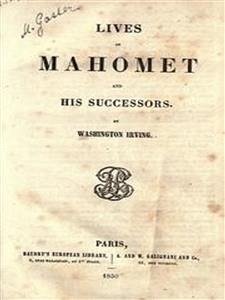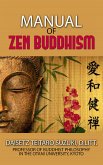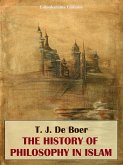Some apology may seem necessary for presenting a life of Mahomet at the present day, when no new fact can be added to those already known concerning him. Many years since, during a residence in Madrid, the author projected a series of writings illustrative of the domination of the Arabs in Spain. These were to be introduced by a sketch of the life of the founder of the Islam faith, and the first mover of Arabian conquest. Most of the particulars for this were drawn from Spanish sources, and from Gagnier's translation of the Arabian historian Abulfeda, a copy of which the author found in the Jesuits' Library of the Convent of St. Isidro, at Madrid. Not having followed out in its extent the literary plan devised, the manuscript life lay neglected among the author's papers until the year 1831, when he revised and enlarged it for the Family Library of Mr. John Murray. Circumstances prevented its publication at the time, and it again was thrown aside for years. During his last residence in Spabi the author beguiled the tediousness of a lingering indisposition by again revising the manuscript, profiting in so doing by recent lights thrown on the subject by different writers, and particularly by Dr. Gustav Weil, the very intelligent and learned librarian of the University of Heidelberg, to whose industrious researches and able disquisitions he acknowledges himself greatly indebted.* * Mohammed der Prophet, sein Leben imd seine Lehre. Stuttgart, 1843. Such is the origin of the work now given to the public; on which the author lays no claim to novelty of fact, nor profundity of research. It still bears the type of a work intended for a family Ubrary; in constructing which the whole aim of the writer has been to digest into an easy, perspicuous, and flowing narrative, the admitted facts concerning Mahomet, together with such legends and traditions as have been wrought into the whole system of Oriental hterature; and at the same time to give such a summary of his faith as might be sufficient for the more general reader. Under such circumstances, he has not thought it worth while to encumber his pages with a scaffolding of references and citations, nor depart from the old English nomenclature of Oriental names. W. I. Sunnyside, 1849.
Bitte wählen Sie Ihr Anliegen aus.
Rechnungen
Retourenschein anfordern
Bestellstatus
Storno









